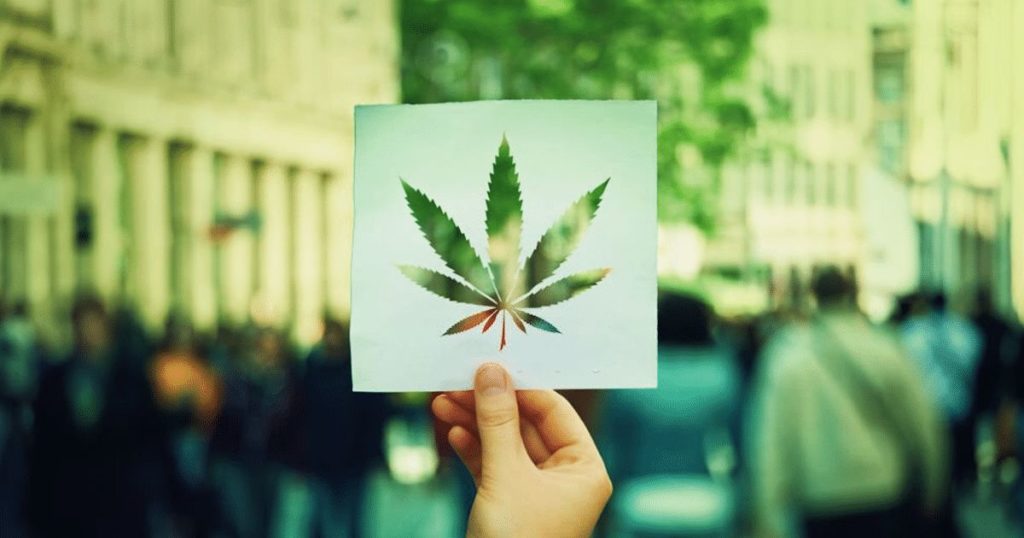It looks like, come November, Maryland voters will finally get the chance to vote for legalization–it was about time.
Marylanders have been waiting for a new approach to cannabis legislation for a long time, and the passing of these bills represents a promising step forward. This is a step ahead in the process of putting an end to the age of cannabis prohibition. The proposal is both long overdue and widely supported by constituents.
After weeks of back-and-forth between the House of Delegates and Senate on three separate cannabis bills, a number of amendments were adopted.
Here is a breakdown of what is happening currently and what is upcoming in this exciting new step toward legalization.
The Three Bills
On the House side, Del. Luke Clippinger (D), who leads the Judiciary Committee and chaired a legislative cannabis committee organized by House Speaker Adrienne Jones, introduced HB 1 and HB 837. (D).
HB 1
This bill was meant to put legalization on the ballot, but it was altered in the Senate to include wording informing voters that legalization would not be implemented until July 2023, and stating that only individuals 21 and older would be able to enter the market.
HB 837
HB 837 establishes the main guidelines for the adult-use program if voters pass the ballot proposal. These rules largely deal with sanctions and expungement of previous cannabis-related convictions.
Amongst the rules set out by the bill, adults would be able to acquire and possess up to 1.5 ounces of cannabis under the law that would be enacted if voters approved legalization at the ballot box. The Act would also eliminate criminal penalties for possessing up to 2.5 ounces of marijuana. Adults 21 and up would be able to grow up to two plants for personal use and to give cannabis out for free.
Additionally, previous convictions for conduct rendered legal under the proposed legislation would be immediately expunged, and those presently serving time for such acts would be eligible for re-sentencing.
SB 833
A separate bill, SB 833 filed by Sen. Brian Feldman (D), would have provided specific regulations for the industry—touching on tax policy, licensing, and more. However, Feldman’s bill was essentially substituted with the text of HB 837. As a result, if the referendum passes, lawmakers will revisit the issue of commercial cannabis legislation next year.
[RELATED READING: Next States to Legalize Cannabis in 2022]
Where The Bills Are Now
On Friday, the House Judiciary Committee agreed with the revised version of HB 1 and sent it back to the floor. It was approved by the full chamber by a vote of 94-39. The referendum initiative does not require the governor’s approval because it is a constitutional amendment.
On Thursday, the Senate passed HB 837 as amended by a vote of 30-15, sending it back to the House for concurrence. It was then approved by the House Judiciary Committee on Friday before being brought to the floor, where it was approved by a vote of 89-41, sending it to the governor.
SB 833 didn’t fare so well. It was likewise revised and passed by the Senate on Friday, 29-17. But because lawmakers faced a deadline to pass any legislation through both chambers by the end of the week in order to retain the ability to override the governor’s veto, it was dropped, making the identical HB 837 the official vehicle for the reform.
Some Issues Looking Ahead
If voters approve legalization in November, it will not go into action right away. Possession of small amounts of cannabis would be a civil violation beginning January 1, 2023, punishable by a $100 fine for up to 1.5 ounces, or $250 for more than 1.5 ounces and up to 2.5 ounces. Legalization for up to 1.5 ounces of marijuana would not take effect for another six months.
Activists are frustrated by the rushed timeline, insisting that language could have been added to the legislation that would deal with current issues surrounding cannabis possession. For example, activists urged lawmakers to include a provision prohibiting police from conducting searches just based on the odor of marijuana.
And then there are issues with the legislations that are tied in with race. The bill would provide equity funding to jurisdictions with the highest number of cannabis arrests; however, while black people are more likely to face criminalization for cannabis on average, some counties in Maryland with the highest number of marijuana arrests are predominantly white, potentially undermining the intent of the reform provision.
So there is still work to be done.
Maryland legalized medical marijuana in 2012 through a legislative act. A decriminalization law went into effect two years later, replacing criminal sanctions for possession of less than 10 grams with civil fines ranging from $100 to $500. However, a lot of efforts to promote marijuana reform have fallen short since then. With the newest bills in the works, Maryland is on the path to legalization–finally.
Enjoyed that first hit? Come chill with us every week at the Friday Sesh for a freshly packed bowl of the week’s best cannabis news!

















